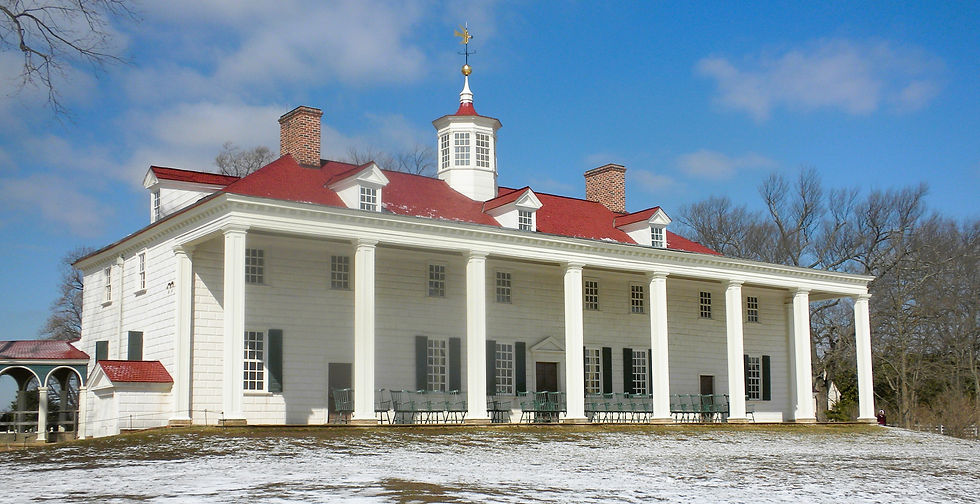Gratitude Friday 8-19-22 – Human Connection
- Bill Stauffer

- Aug 19, 2022
- 4 min read
“We cannot live only for ourselves. A thousand fibers connect us with our fellow men; and among those fibers, as sympathetic threads, our actions run as causes, and they come back to us as effects.” ― Herman Melville

Humans are social beings; we need other people. I was thinking about this recently when Julie and I watched this TV show Alone. They drop people in very remote locations with a few tools and whoever is able to sustain themselves the longest wins. They need to make shelter and get food. Survival in the wilderness mostly comes down to the equation of calories in and calories expended. It seems the really tough acting ones are the first off the show, but I digress. Beyond finding calories, the show highlights that being alone for long periods of time has a severe psychological toll on people. Contestants struggled with isolation as much as the pursuit of calories. We need human connection nearly as much as food, which is pretty incredible when you think about it.
Before I got into recovery, at age 21, I walked around fairly numb to the world. It is not an uncommon experience for persons who are heavy substance users to feel isolated due to their altered state. Addiction is profoundly isolating. It is also perhaps one of the most complex conditions there is. It defies single causation explanations. One of the more recent prevailing schools of thought is that addiction is caused by a society that isolates and dehumanizes its members. That the opposite of addiction is connection. I get asked about that TED talk often. There is a lot of truth in it. Social isolation and feelings of detachment increase in our modern world, people turn to drugs to numb out the pain or even to feel anything at all. But it is not the whole truth in respect to addiction.
The notion of “fixing” addiction by improving social connectedness is no panacea. If we increase connection, we would still have people who become addicted. There are genetic factors as well as environmental factors underpinning addiction. Sometimes, it actually is the drug. It would be over simplistic to think that if you take a person with a severe substance use disorder and make them feel loved and wanted, they will simply moderate their use and be well again. It most often does not work that way for severe SUDs. As NIDA neuroscientist Nora Volkow talks about, addiction is a brain condition with complex genetic and environmental factors. I don’t use drugs so I can have a normal life. I can’t use drugs and have a normal life. I chose life. This is also true for millions of Americans like me in recovery. The capacity to be present is vital for human connection. Staying stoned sets up a wall that keeps everyone and everything out, a topic that should get more consideration as our society seems to be moving towards ever heavier drug use.
Beyond the addiction and recovery thing, I am on the fence in respect to introversion and extroversion category, my scores shift back and forth over the decades as I have taken the Myers Briggs. I can do public stuff and really enjoy it, but also greatly value solitude. Yet at the end of the day, this whole pandemic thing has made me more aware of how valuable it is to spend time with people. Julie and I went out to dinner with some friends last week we had not seen in a long time, and it was just wonderful. Two other friends we had not seen in well over two years had us over for dinner at their house and we picked up things where we had left off. Fellowship is so important in life!
Also, in recent weeks, I have had the opportunity to do some traveling for work. Some public speaking and training around the country, as well as to attend the SAMHSA Recovery Summit in Rockville, MD. This travel has provided me the opportunity to have some face-to-face conversations with people from all across the country. Many who I have worked with, often closely over the years. Some of these folks I had never met in person before this month. Physically meeting and having the time to sit and talk face to face is vital for connection. One of the things that has suffered over the pandemic has been the opportunity for people to spend time together in person. Being the resourceful creatures we are, we used zoom to stay connected. We were able to do some amazing things virtually, but a zoom call is not like sitting across a table from each other having coffee and connecting in ways that just are not possible any other way.
I have been thinking about so many of these connections I have and the role recovery has in my capacity to be present. I am grateful to be a part of something bigger than myself. I can now see how special it is to be able to spend time with people for work and in my personal life with whom I share interests. Over the next few weeks, I am going to be traveling around the country to speak to and listen to some more recovery communities. Perhaps one of the more important facets of connection is listening to others to seek to understand and find common ground. To truly hear another person is to connect with them. My recovery journey has been about forging connections and supporting others even as they support me. This is a central facet of the human condition. I am grateful that I am not isolated from everything and everyone under the thin shell of my skin, which is where addiction was taking me. I am grateful that the road in my life curved back to connection.
What are you grateful for today?










Comments